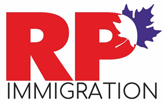At the heart of Canada’s immigration system lies a deep commitment to family reunification. The Canadian government is steadfast in its determination to help Canadian citizens and permanent residents bring their beloved family members to live and work in the Great White North.
One program that plays a pivotal role in achieving this mission is the Parents and Grandparents Program (PGP). In 2023, the PGP is thriving, and Immigration, Refugees, and Citizenship Canada (IRCC) has unveiled ambitious plans for a substantial intake of sponsorship applications.
Historic Commitment to Reunification
IRCC’s dedication to reuniting families is unmistakable when you look at its impressive track record. The Multi-Year Levels Plan has seen historically high admissions numbers for parents and grandparents. In the current year, the government department aims to welcome up to 15,000 complete applications under the Parents and Grandparents Program.
 Mark Your Calendars – PGP Reopens in 2023
Mark Your Calendars – PGP Reopens in 2023
The process is set to kick off on October 10, 2023. IRCC’s goal is to send invitations to apply to a pool of 24,200 potential sponsors who have expressed their interest. The objective? To receive up to 15,000 complete applications, with invitations dispatched over a span of two weeks.
Addressing the 2020 Backlog
To tackle the backlog of submissions from 2020, IRCC is taking a unique approach. Instead of launching a new interest-to-sponsor form for these individuals, the department will randomly select potential sponsors from the existing pool. This strategy aligns with the successful process used in 2021 and 2022. Those who submitted an interest-to-sponsor form in 2020 but didn’t receive an invitation in the past two years are encouraged to check the email account they provided in 2020 when they submitted their form.
Embracing Technology for a Modernized System
For applicants fortunate enough to be invited to participate in the 2023 intake, a streamlined process awaits. They can benefit from the convenience of using the Permanent Residence Portal or the Representative Permanent Residence Portal, enabling them to submit their applications electronically. This is a testament to the government’s commitment to modernizing Canada’s immigration system, with the ultimate goal of expediting and simplifying the application process.
Super Visa: An Alternative Path
If you don’t receive an invitation to apply this year but still long to reunite with your parents and grandparents in Canada, don’t lose hope. The super visa remains a viable option. It’s a multiple-entry visa valid for up to 10 years, and recent enhancements allow holders to stay in Canada for extended periods – up to 5 years at a time, with the possibility of extending their visit by up to 2 years at a time without leaving the country. These changes make it easier for Canadian citizens and permanent residents to enjoy more extended periods of reunification with their loved ones.
Clearing the Path by Addressing Backlogs
The substantial increase in applications that were still in processing status in early 2021 prompted the expansion of the program in 2023. In 2020, IRCC reported a processing rate of 22% and a completion rate of 78% for parent sponsorship applications. However, January 2021 saw a significant shift, with applications for parent sponsorship showing a 78% processing rate and only a 22% completion rate. This shift led to a substantial backlog of over 19,000 applications from 2020 that were still in process.
As of September 2023, the processing times for Parent’s sponsorship applications stand at 45 months for Quebec and 23 months for the rest of the provinces, according to official government website data. The government remains steadfast in its commitment to improving processing times and facilitating family reunification for Canadian citizens and permanent residents.
Accessing Valuable Insights
If you’re looking for insights into previous application intakes for the Parents and Grandparents Program, you’re in luck. You can refer to the recently published intake report on the official IRCC website, titled “The Parents and Grandparents Program: Intake Report 2014 to 2019.” Furthermore, an up-to-date intake report covering the 2020 to 2022 application intakes is expected to be published by the end of this year.
Embark on Your Family Reunification Journey
Ready to take the first step towards reuniting with your loved ones in Canada? Begin your journey today by completing our online assessment. Family reunification is at the heart of Canada’s immigration system, and the Parents and Grandparents Program is here to help you make that dream a reality.




